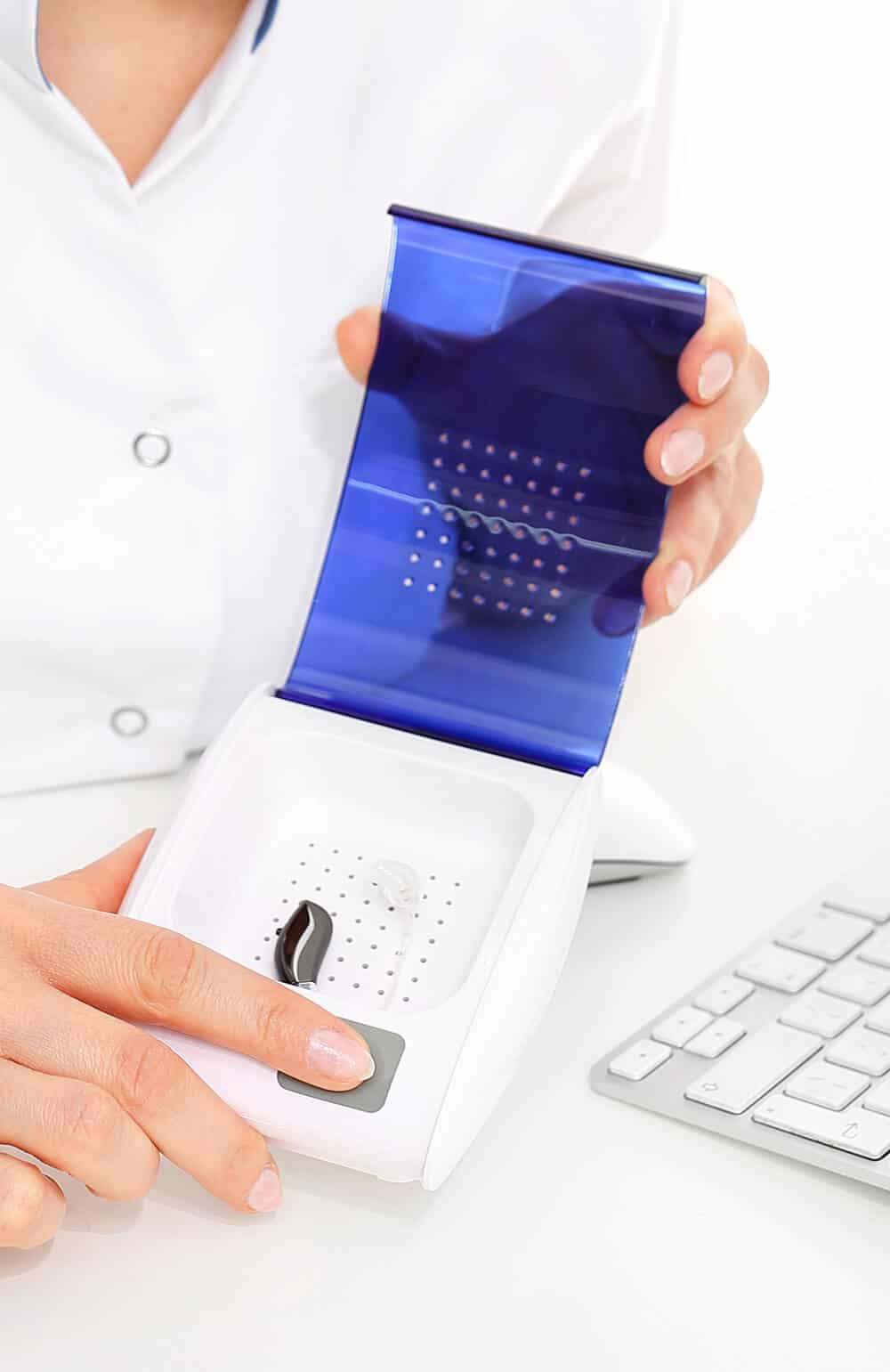Hearing Aid Repair
How to take care of your hearing aids every day.
Clean the earwax out
It is essential to clean earwax out of your hearing aid so that it doesn't break down temporarily or get damaged. Try to get the right tools for the job, like a soft brush and small picks or loops from where you bought your hearing aid. Follow the instructions for cleaning your hearing aids that your hearing care provider or the company that made your hearing aids gives you. When you take out your hearing aids at night, clean them with a dry, soft cloth. Wipe things down often. If you use water, alcohol swabs, or cleaning solutions, your hearing aids may break or be damaged.
Don't let your hearing devices fall.
They could break if you drop your hearing aids on the floor. Sit on your couch or somewhere else that will protect your hearing aids if you drop them while you learn how to put them on and take them off.
Store them well.
When not using your hearing aids, keep them away from heat and moisture and put them in a dry, cool place in your house. Ask us about a box that gets rid of moisture. Moisture can damage sensitive circuitry, so these boxes are made to keep it out.
Save power.
If you don't need to use the battery, leave the battery door open.

Fixing problems with your hearing aids
Problem #1: They're not making any noise.
- Check the hearing aid with your eyes. Is there earwax in the way of the microphone's opening or sound outlet?
- Check to see if your hearing aid is turned on. Hearing aids are usually turned on when the battery door is shut.
Problem #2: They aren't loud enough.
- Check to see if earwax is blocking the microphone or the hole where the sound comes out.
- Try a different program or memory.
- Think about whether it's possible that your hearing has changed. If it's been a while since your last hearing test, you might need to make an appointment with us.
Problem #3: The sound is messed up.
- Check the batteries. If they have rusted, you should get new ones.
- Look at the battery contacts. These little metal prongs connect to the battery when the door is closed. If the contacts are rusty, clean them.
- Try a different program or memory. You may have changed to a setting for hearing aid users with other needs.
Problem #4: They give feedback.
- Take them out of your ears and put them back in. Turn down the sound. If the hearing aids are in correctly and stop whistling when the volume is turned down,
- there may be too much sound leaking out of the vent or around the earmold.
We can fix your hearing aids professionally!
If you've tried the tips above and your hearing aid still doesn't work, bring it to us. Our professional team is excited to look at your hearing aids and help you decide if it makes the most financial sense to have them fixed. We work with all makes and models and are here to help you.
Several things affect how much it will cost to fix your hearing aids:
- If a warranty still covers your hearing aids
- How bad the damage is
- How much it costs to buy new parts
If you bought your hearing aids from us and they are still under warranty, you won't have to pay much or anything to keep them in good shape. If the warranty has ended, we need to find out the extent of the damage before we can give you an estimate.
Because of technological changes, hearing devices made today are smarter and have more features than those made a few years ago. Depending on how much it will cost to fix your hearing aids, you may be better off getting a new pair. This is especially true if the aids you already have are five years old.
Whatever you need, contact us today to see how we can help!
Prioritize Your Hearing Health!
Prioritizing your hearing health can change your life. Treating hearing loss drastically enhances hearing and communication which has far-reaching effects on all aspects of life. Strengthened communication offers countless benefits including: improves relationships, enriches social life, boosts confidence, and fully supports people navigating daily life independently. This is great for overall health, longevity, and quality of life!
The first step is simple. Contact us today to schedule a consultation appointment! Your consultation will include a hearing exam that establishes your hearing needs. We are here to guide you through the process of tending to your hearing health.

